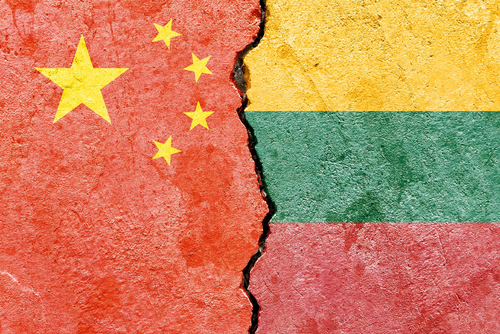Beijing (Washington Insider Magazine) -Lithuanian food producers found themselves caught between souring relations between Beijing and Vilnius this past week, as China stopped approving new permits for food exports from Lithuania.
Tension between Lithuania and China has intensified following the reciprocal opening of diplomatic missions between Vilnius and Taipei in early August. While some exports have been able to continue, Director of the State Food and Veterinary Service (SFVS) Mantas Staskevicius told the Baltic Times that the certification process for new permits has stopped.
“[China’s authorities] have stopped the certification process,” he said. “Questionnaires are not being completed because of a lack of audits on their side and everything has stopped.
Staskevicius added that the approval of products stopped without any advanced notice.
“They [Chinese authorities] just are not doing it. I can’t comment on why,” he said.
U.S. Secretary of State Antony Blinken spoke with Lithuanian Minister of Foreign Affairs Gabrielius Landsbergis on Aug. 21. During the call, Blinken expressed “ironclad U.S. solidarity” with Lithuania “in the face of the People’s Republic of China’s coercive behavior,” according to a statement released by State Department Spokesperson Ned Price.
In turn, Landsbergis tweeted that “[China’s] aggressive pressure is unacceptable.”
Blinken tweeted his support for Lithuania’s decision to expand ties with Taiwan, continuing prior U.S. support for its European partners in developing relations with Taiwan.
The halt in new permits for food exports comes days after the China Railway Container Transport Company stopped direct freight trains to Lithuania, according to the Hong Kong-based South China Morning Post.
The embassy in Lithuania is Taiwan’s first in Europe in 18 years, and the first of which to be named Taiwan instead of Chinese Taipei, the name used by China. Lithuania has remained committed to establishing ties with Taiwan, while maintaining the stance that doing so is not in violation of Beijing’s One China Policy, which sees Taiwan as part of the country.
In a call between Landsbergis and the chair of the UK Parliament Foreign Affairs Committee on Aug. 19, Landsbergis reiterated this belief.
“Lithuania, as well as other E.U. and world countries, is interested in developing economic relations with Taiwan, which is nothing new or extraordinary and does not go contrary to international commitments vis-à-vis China,” he said, according to a statement released from the Lithuanian Ministry of Foreign Affairs.


























